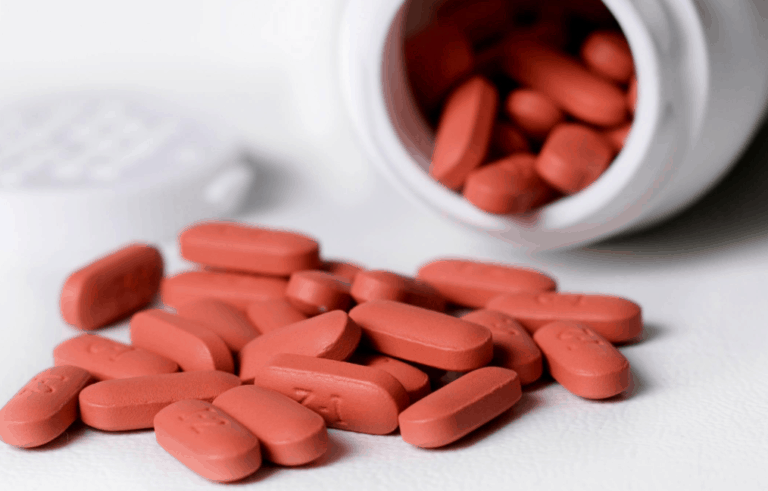Although irritable bowel syndrome (IBS) is more likely to develop in women, men are affected by this functional disorder as well. IBS affects between 10 and 15 percent of the general population and typically develops in people younger than 50. A variety of treatment options, both conventional and natural, are available, and in the latter category there has been some research into taking probiotics for irritable bowel syndrome.
What is irritable bowel syndrome?
Irritable bowel syndrome is a common, chronic condition that affects the large intestine. It is characterized by abdominal cramping and pain, bloating, mucus in the stool, gas, and diarrhea or constipation or both. Most people with IBS don’t experience severe disease, but those who do may also have rectal bleeding, iron deficiency anemia, unexplained vomiting, swallowing difficulties, weight loss, and persistent pain that does not go away by passing gas or having a bowel movement.
The good news about IBS is that it is not associated with an increased risk of colon cancer, nor does it cause damage to the intestinal tract, as does inflammatory bowel disease (IBD), which is sometimes confused with IBS.
Causes of irritable bowel syndrome
The causes of irritable bowel syndrome are not clearly defined, although experts have identified likely candidates. They include:
- Changes in bacteria in the gut (microflora) that differs from that seen in healthy individuals. An imbalance of the microflora, a condition called dysbiosis, is a strong candidate for contributing to IBS and its symptoms
- Abnormalities in the nerves signals that pass between the brain and digestive system, especially the intestinal tract, which can cause the body to overreact to digestive changes
- Muscle contractions in the intestinal tract that continue longer and stronger than normal or that are weaker than normal
- Bacterial or viral infection of the intestinal tract, or excessive levels of bacteria in the intestines
- Inflammation in the intestines, which is associated with a greater number of immune system cells found in the intestinal tract
In addition, consuming certain foods (e.g., dairy, citrus, beans, carbonated beverages), stress, and hormone fluctuations may trigger symptoms.
Dysbiosis and irritable bowel syndrome
The role of dysbiosis (imbalance in the microbial environment) in irritable bowel syndrome and the possibility that probiotics may be a viable treatment option has been the topic of numerous studies. Because the gut microbiota is such a vast ecosystem, containing about 100 trillion cells, and it is constantly changing over a person’s lifetime, it is a highly complex system that is susceptible to internal and external influences.
In a recent evaluation of 17 studies, investigators identified specific microorganisms in individuals with IBS that differed from those in healthy controls. One interesting findings was that the differences were associated with varying geographical locations. This finding suggested that the presence of dysbiosis in people with irritable bowel syndrome may be more significant than which specific species are involved.
A series of meta-analyses published over the past decade have concluded that probiotics, also known as beneficial bacteria, are an effective way to treat IBS. One such analysis that involved 43 trials reported that probiotics were especially helpful in treating bloating, abdominal pain, and flatulence. What is not yet clear, however, is which specific probiotic strains should be used and how long treatment should last.
Some evidence suggests that use of a low dose single-strain probiotic for a short time is more effective than taking a combination of strains. For example, a 2016 trial of 36 patients with irritable bowel syndrome found that use of Bacillus coagulans for 90 days resulted in a significant decrease in abdominal pain, bloating, diarrhea, stool frequency, and vomiting when compared with placebo.
Other studies that involved taking a single strain of probiotics, including Lactobacillus acidophilus NCFM and Lactobacillus rhamnosus GG, yielded similar results. These findings and more have led experts to concluded that “the evidence presented in single-strain probiotic trials and meta-analyses is compelling enough to consider probiotics as part of the overall treatment approach for IBS patients.” However, researchers still are not clear on which specific probiotic species are best for treating IBS, nor their potency or the duration of treatment.
References
Distrutti E et al. Gut microbiota role in irritable bowel syndrome: New therapeutic strategies. World Journal of Gastroenterology 2016; 22:2219-41.
Lyra A et al. Irritable bowel syndrome symptom severity improves equally with probiotic and placebo. World Journal of Gastroenterology 2016; 22(48):10631-642.
Majeed M et al. Bacillus coagulans MTCC 5856 supplementation in the management of diarrhea predominant Irritable bowel syndrome: a double blind randomized placebo controlled pilot clinical study. Nutrition Journal 2016; 25:21.
Pedersen N et al. Ehealth: low FODMAP diet vs Lactobacillus rhamnosus GG in irritable bowel syndrome. World Journal of Gastroenterology 2014; 20(43):16215-226.







